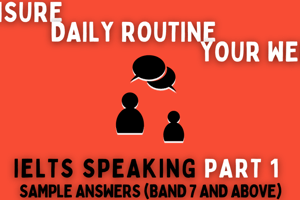Podcast
Questions and Answers
以下哪个最准确地描述了同义词的作用?
以下哪个最准确地描述了同义词的作用?
- 避免在写作和口语中重复使用相同的词汇 (correct)
- 帮助你表达不同的观点
- 提高你的写作和口语技巧
- 使你的文章更简单明了
下列哪个词最可能属于与“book”相关的词族?
下列哪个词最可能属于与“book”相关的词族?
- run
- sing
- read (correct)
- jump
如果要表达相反的意思,你会将“happy”替换为以下哪个词?
如果要表达相反的意思,你会将“happy”替换为以下哪个词?
- content
- sad (correct)
- excited
- relaxed
在提高英语水平方面,熟悉习语(idioms)能带来什么好处?
在提高英语水平方面,熟悉习语(idioms)能带来什么好处?
Collocations 主要指什么?
Collocations 主要指什么?
'Head over heels' 这个习语的意思是什么?
'Head over heels' 这个习语的意思是什么?
以下哪个可以帮助你更准确地表达想法?
以下哪个可以帮助你更准确地表达想法?
下列哪个短语是常用的搭配?
下列哪个短语是常用的搭配?
下列哪个不是与词组“piece of cake”相关的含义?
下列哪个不是与词组“piece of cake”相关的含义?
为了在考试中展示你的英语语言能力,应该努力学习和掌握以下哪项内容?
为了在考试中展示你的英语语言能力,应该努力学习和掌握以下哪项内容?
以下哪个可以帮助你更准确地理解单词在不同语境中的含义?
以下哪个可以帮助你更准确地理解单词在不同语境中的含义?
下列哪个是扩大词汇量的有效方法?
下列哪个是扩大词汇量的有效方法?
Flashcards are hidden until you start studying
Study Notes
Vocabulary for IELTS 7.0: Synonyms, Word Families, Antonyms, Idioms, and Collocations
Preparing for the IELTS 7.0 exam requires a strong command of the English language, which includes a diverse vocabulary. Here, we will discuss the importance of synonyms, word families, antonyms, idioms, and collocations in expanding your vocabulary and performing well in the exam.
Synonyms
Synonyms are words that have the same or nearly the same meaning. Familiarizing yourself with synonyms can help you express your ideas more precisely and effectively. For example, instead of using the word "big," you could use synonyms like "large," "huge," or "enormous." Practicing with synonyms can also help you avoid repetition in your writing and speaking.
Word Families
Word families are groups of words that are related in meaning or function. For instance, the word "book" belongs to the word family of words related to reading and writing. Understanding word families can help you learn new words more efficiently, as you can learn the meanings of words that are related to words you already know. It can also help you recognize patterns in the English language, which can improve your overall understanding of the language.
Antonyms
Antonyms are words that have opposite meanings. For example, the antonym of "hot" is "cold." Knowing antonyms can help you express contrasting ideas and enhance your writing and speaking skills. It can also help you understand the nuances of words and their meanings in different contexts.
Idioms
Idioms are expressions that have a figurative meaning, often different from their literal meaning. For example, the phrase "piece of cake" is an idiom that means something is easy to do. Understanding and using idioms can make your language more colorful and expressive, and it can also help you understand the cultural context of English language.
Collocations
Collocations are combinations of words that are commonly used together. For example, "make a decision" is a collocation. Knowing common collocations can help you express ideas more fluently and accurately. It can also help you avoid errors and improve your grammar.
To expand your vocabulary for IELTS 7.0, focus on learning synonyms, understanding word families, recognizing antonyms, mastering idioms, and becoming familiar with collocations. Practice using these words and phrases in context, and strive for a diverse range of vocabulary to demonstrate your English language proficiency during the exam.
Studying That Suits You
Use AI to generate personalized quizzes and flashcards to suit your learning preferences.




